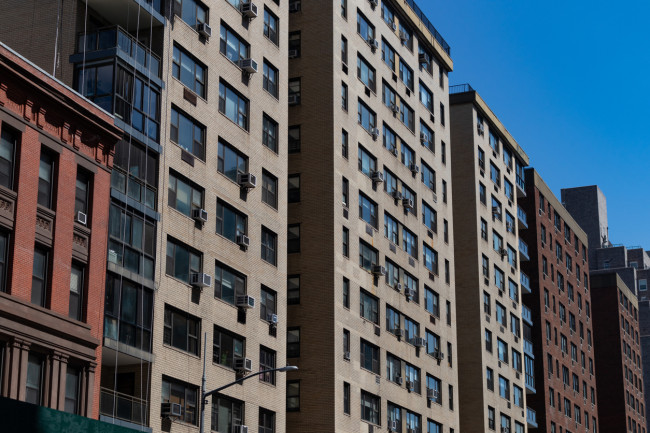Can I be held personally liable for actions taken in my capacity as board member?

Courts are generally reluctant to impose personal liability on board members who work on behalf of the building in a voluntary capacity.
iStock
“When you take on a voluntary position to serve on a condo or co-op board, it is reasonable to consider whether you might have any personal liability exposure,” says James Woods, Esq., a partner at Woods Lonergan PLLC, who is a litigation attorney with a concentration in representing and advising condo and co-op boards, as well as other corporate and business entities.
Board members are tasked with a variety of sensitive responsibilities on behalf of their building. “This may include being called upon to sign banking or finance documents or papers in connection with legal actions concerning common charges on the part of the board,” Woods says.
Protections under the business judgment rule
As a general matter, the courts in New York have protected individuals in corporations, including co-op and condo boards, who are acting in good faith by reasonably carrying out their duties in the usual course of business under what is known as the business judgment rule. “This typically would include actions or decisions in connection with contracts for vendors at the building,” Woods says.
It is very important to note that if a board member participates in a fraudulent act or has knowledge of a fraud and does not seek to rectify it, it may give rise to individual liability. “Even if the officer did not stand to gain personally from the actions, or if they acted on behalf of the entity, it may not relieve the directors and officers from personal liability,” Woods says.
Signing documents in your capacity as a board member
Another layer of protection should be present in the documents you sign during the course of your work for the board.
“As a signatory for the building you will want to indicate that you are signing in your capacity as, for example, treasurer for the board of managers for your building,” says Lauren Tobin, Esq., an associate attorney at Woods Lonergan PLLC, who specializes in representing condo and co-op boards, as well as buyers and sellers. This should be the wording used on agreements, rather than simply signing your name as an individual.
In most cases, for example, if you are dealing with a bank, you would never be signing your name as an individual owner. However, it is good practice to make sure all the documents you sign on behalf of the board are done so with wording that clearly states the signatory is representing the board.
Protections afforded by governing documents
Ideally you would speak with an attorney who specializes in condo and co-ops to inspect the governing documents for the board. The bylaws may include indemnity provisions with respect to board members acting in the scope of their duties, so if a board member is individually named as a party in a lawsuit, the condo would pay for the cost of litigation and any liability arising from the matter.
To the extent the governing documents and amendments are silent on the protections afforded to individual board members, the board should seek the advice of an attorney who concentrates in this area. “It’s possible to draft a board resolution to specifically address these concerns and insure the indemnification, including legal representation for board members sued in their individual capacity,” Woods says.
Your building's insurance coverage
Your condo or co-op should and likely will maintain insurance coverage for acts of directors and officers which includes liability and legal defense coverage for board members in the event of a lawsuit.
“You should provide notice to all claims to your carrier and speak with an attorney familiar with these types of claims,” Woods says.
The difference between actions and errors
In spite of these protections, it is not unusual for a board member to be named personally in a lawsuit against the building. “It can be alarming for the individual when that happens,” Tobin says.
A breach of fiduciary duty is, of course, a serious matter but courts are very reluctant to impose personal liability on board members. “They understand there’s no personal interest in volunteering on the board except for improving the community in which they live,” she says.
Mistakes can happen but the court recognizes a difference between what is called affirmative tortious acts—which could result in you being sued—or nonfeasance, which is a failure in carrying out your duties, Tobin says. The former would be a deliberate act of misconduct—for example, a board member purposely adds unsubstantiated fines in order to generate more money from a condo owner.
An act of nonfeasance on the other hand, is where there’s an omission or error. “Courts are the least likely to impose personal liability here,” Tobin says. This might include a situation where late fees continue to be applied to an account where there is no longer a violation. “If the late fees are applied in error a court would typically not impose personal liability on the board member responsible,” she says.
James F. Woods is a partner at Woods Lonergan PLLC and Lauren K. Tobin is an associate attorney at Woods Lonergan PLLC. Woods Lonergan PLLC represents New York City cooperative corporations, condominium boards, management companies, buyers, sellers, commercial landlords and tenants. To submit a question for this column, click here. For a free, 15-minute legal consultation, call 212-684-2500 or send an email.
You Might Also Like
Sign Up for our Boards & Buildings Newsletter (Coming Soon!)
Thank you for your interest in our newsletter. You have been successfully added to our mailing list and will receive it when it becomes available.





















